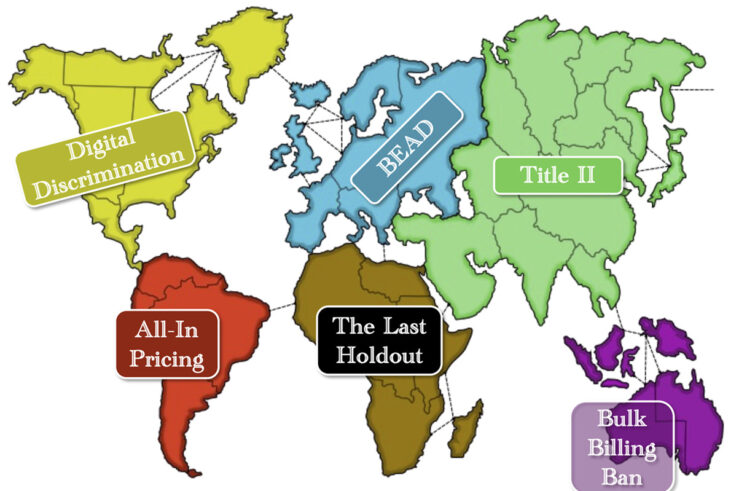
The U.S. House this week passed H.R. 2668, the Consumer Protection and Recovery Act (CPRA), which authorizes the Federal Trade Commission (FTC) to seek monetary relief in federal courts for injunctions brought under Section 13(b) of the Federal Trade Commission Act.
Potential relief under the CPRA is comprehensive. It includes “restitution for losses, rescission or reformation of contracts, refund of money, return of property … and disgorgement of any unjust enrichment that a person, partnership, or corporation obtained as a result of the violation that gives rise to the suit.” What’s more, under the CPRA, monetary relief may be obtained for violations that occurred up to 10 years before the filing of the suit in which relief is requested by the FTC.
The Senate should reject the House version of the CPRA. Its monetary-recovery provisions require substantial narrowing if it is to pass cost-benefit muster.
The CPRA is a response to the Supreme Court’s April 22 decision in AMG Capital Management v. FTC, which held that Section 13(b) of the FTC Act does not authorize the commission to obtain court-ordered equitable monetary relief. As I explained in an April 22 Truth on the Market post, Congress’ response to the court’s holding should not be to grant the FTC carte blanche authority to obtain broad monetary exactions for any and all FTC Act violations. I argued that “[i]f Congress adopts a cost-beneficial error-cost framework in shaping targeted legislation, it should limit FTC monetary relief authority (recoupment and disgorgement) to situations of consumer fraud or dishonesty arising under the FTC’s authority to pursue unfair or deceptive acts or practices.”
Error cost and difficulties of calculation counsel against pursuing monetary recovery in FTC unfair methods of competition cases. As I explained in my post:
Consumer redress actions are problematic for a large proportion of FTC antitrust enforcement (“unfair methods of competition”) initiatives. Many of these antitrust cases are “cutting edge” matters involving novel theories and complex fact patterns that pose a significant threat of type I [false positives] error. (In comparison, type I error is low in hardcore collusion cases brought by the U.S. Justice Department where the existence, nature, and effects of cartel activity are plain). What’s more, they generally raise extremely difficult if not impossible problems in estimating the degree of consumer harm. (Even DOJ price-fixing cases raise non-trivial measurement difficulties.)
These error-cost and calculation difficulties became even more pronounced as of July 1. On that date, the FTC unwisely voted 3-2 to withdraw a bipartisan 2015 policy statement providing that the commission would apply consumer welfare and rule-of-reason (weighing efficiencies against anticompetitive harm) considerations in exercising its unfair methods of competition authority (see my commentary here). This means that, going forward, the FTC will arrogate to itself unbounded discretion to decide what competitive practices are “unfair.” Business uncertainty, and the costly risk aversion it engenders, would be expected to grow enormously if the FTC could extract monies from firms due to competitive behavior deemed “unfair,” based on no discernible neutral principle.
Error costs and calculation problems also strongly suggest that monetary relief in FTC consumer-protection matters should be limited to cases of fraud or clear deception. As I noted:
[M]atters involving a higher likelihood of error and severe measurement problems should be the weakest candidates for consumer redress in the consumer protection sphere. For example, cases involve allegedly misleading advertising regarding the nature of goods, or allegedly insufficient advertising substantiation, may generate high false positives and intractable difficulties in estimating consumer harm. As a matter of judgment, given resource constraints, seeking financial recoveries solely in cases of fraud or clear deception where consumer losses are apparent and readily measurable makes the most sense from a cost-benefit perspective.
In short, the Senate should rewrite its Section 13(b) amendments to authorize FTC monetary recoveries only when consumer fraud and dishonesty is shown.
Finally, the Senate would be wise to sharply pare back the House language that allows the FTC to seek monetary exactions based on conduct that is a decade old. Serious problems of making accurate factual determinations of economic effects and specific-damage calculations would arise after such a long period of time. Allowing retroactive determinations based on a shorter “look-back” period prior to the filing of a complaint (three years, perhaps) would appear to strike a better balance in allowing reasonable redress while controlling error costs.




